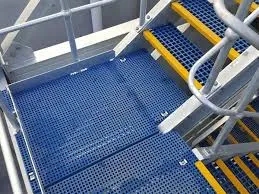Fiberglass, at its core, is a versatile material known for its high strength-to-weight ratio. The addition of a corrosion-resistant resin enhances its inherent qualities, making it suitable for use in chemical plants, oil and gas facilities, marine structures, and even in architectural designs where weathering can be a significant challenge. The key lies in the chemical inertness of the resin, which prevents the penetration of corrosive agents into the material, thereby maintaining its structural integrity over extended periods.
...
2025-08-14 22:02
441
